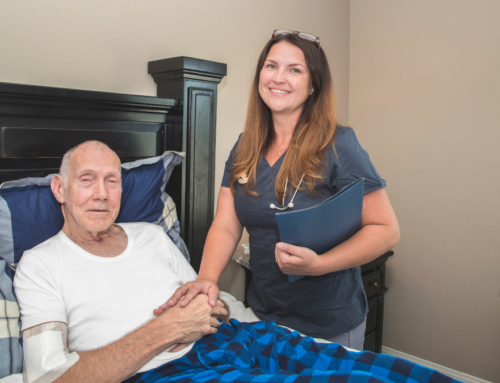
This is the day you thought would never happen. Your roles in life are reversing. You’re trying to make decisions for yourself and your Aging Parent. What will be best for them without altering your life, or theirs, too drastically? How do you keep up the pace and ultimately please everyone around you? You are not alone in life, you have a family, a significant other, a career to think about, and other responsibilities. You want to balance everything to keep everyone happy so life can remain as normal as possible. Think again! Those once a week visits or daily phone calls aren’t enough anymore. Your parents need care, the real kind.
The care includes making sure they eat, that they take their meds (and on-time!), that their money isn’t being floundered away on TV shopping. You may have siblings that think Assisted Living or Nursing Facilities are awful and they don’t want to put Mom or Dad in one even though they also don’t want to help out. How do you cope? How do you deal with this situation without alienating every member of your family?
First, understand that it’s not about you. What I mean by that statement is that it is not about guilt or what some think is the “Right thing to do”. It’s not about hanging on to the person your parent(s) used to be. They are now an elderly person in need of constant (or at least consistent) care and attention. If you need a dose of growing up, this situation will make it happen whether you’re ready or not!
Start with their doctor. Have an appointment to discuss the faltering health of your beloved parent. You can also look into the reputation of the hospital that their health care is associated with. Every hospital has an elder care group of some type. The medical coverage will also have affiliations with elder sourcing. Between the doctor and the medical coverage group, you may be able to determine the types of help and living style your parent’s current status requires. Keep asking until you have the best situation for all concerned.
It may be as simple as having a caregiver visit once or twice a day to help with showering, dressing, meals and meds. Their health may need a higher level of care than that, like a visiting nurse or frequent doctor’s office visits, in which case this is the place to put your initial focus. The best word to learn to help an elder parent is the same as if your infant child were being cared for and that is SAFETY. If safety is not at the level necessary, keep pushing until you get the help you need. Keep insisting on SAFETY in all areas of their life.
It may take you time to uncover everything available to your parent to help with this care process but it will be worth it since elder care can stretch out for several years. It is best to discuss all their health and medical, financial, and personal situations with them before that day arrives.
Similar to when your children were young (or maybe they still are…), when your parents are older, the best thing you can give them is time with you. Spend quality time instead of stressful time. Have them over for a day and dinner instead of needing to pawn them off on someone else. The resentment builds if you do this alone and there are many really good options to take that burden off your shoulders.
Safety and honesty is what makes those later years a good memory!
Here are a couple of FAQs from Baby Boomers who are caring for aging parents and trying to find health care that meets the unique needs of older people. Finding the right kind of care can seem daunting, but a little information and some key resources can help tremendously.
Q: My 81-year-old mother recently fell and was rushed to the emergency room. The doctor who saw her suggested that she start seeing a geriatrician. What is a geriatrician and why should she see one?
A: A geriatrician is a physician with special training and expertise in caring for older adults, especially those with complex health problems. Like children, older adults have unique health care needs. As we age, our bodies change in many ways that affect our health. Among other things, we’re more likely to develop chronic health problems such as heart disease, diabetes and arthritis, and to need multiple medications (all with potential side effects). About 80 percent of adults 65 or older have at least one chronic health condition and 50 percent have at least two. As we grow older it’s also harder for us to recover from illnesses.
Q: I’ve tried to find a geriatrician for my parents but haven’t had any luck. Why aren’t there more geriatricians? What should I do?
A: Today, there are fewer than 7,000 practicing geriatricians in the U.S. That’s about one geriatrician for every 5,000 adults over age 65. The American Geriatrics Society estimates that to meet the demand, medical schools would have to train at least 6,250 additional geriatricians between now and 2030, or about 450 more a year than the current rate. Finding a geriatrician is likely to become even more difficult over the next 20 years, as the nation’s 77 million Baby Boomers reach retirement age. To prepare for this “Aging Boom,” we need to support programs that both train geriatricians and better prepare all health care providers to care for older adults. Until recently, the federal government’s “Title VII” geriatric health professions program did just that, by supporting geriatric education centers and young medical school faculty who trained medical students, primary care physicians, nurses, pharmacists and other providers to better meet the health care needs of older adults. Unfortunately, Congress eliminated all funding for this program in late 2005. Hopefully this funding will be restored – for the sake of all older Americans.
Have you recently felt that you’ve changed roles with your parents? Call or email us, for a free consultation. We can talk through your specific situation and make a recommendation based on your circumstances and budget. Call us at (678) 494-8129 or email us at info@SilverCompanions.com.





